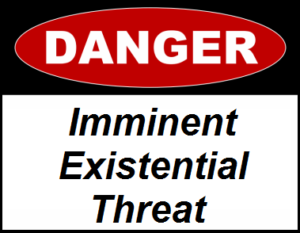The Physician Psyche – An Existential Crisis of Our Own Making
Posted on | April 23, 2016 | Comments Off on The Physician Psyche – An Existential Crisis of Our Own Making

Mike Magee
The medical journals these days are replete with analyses of the latest health reform measures, and their negative impact on the physician psyche. It would be easy to simply connect the dots, and say that physician discontent is the result of ill-advised organizational changes. But, in reality, this problem has plagued the profession for some time, and is existential in nature.
Over the past two decades, our health care system in the United States has been actively transforming. Health is rapidly becoming synonymous with reaching full human potential. Health care provision is increasingly being redefined as a right carrying with it responsibilities for individuals, families and community. Provision of care is now a collaborative effort with individual providers giving ground to health care teams, and consumers joining hands with providers in strategic health planning and mutual decision making.
The role of ‘professionalism’ in training of physicians and in the delivery of care has been heralded by major scientific bodies including the AAMC, Institute of Medicine, the ACGME and the ABMS. Their listing of desirable attributes in health care professionals is helpful. But absent the context of rapid environmental change, the modeling of new approaches to care that are emerging from both the consumer and provider side, and the integration of the latest social science concepts which impact human planning, development and potential, physicians will predictably under perform in the modern world and not fully realize either the professionalism they desire or their full leadership potential in the future.
As a Petersdorf Scholar-in-Residence at the Association of American Medical Colleges (AAMC) in 2002, Dr. Thomas S. Inui opened his mind and heart to try to understand whether and how professionalism could be taught to medical students and residents. His thoughts on the topic, published under the title “A Flag In The Wind: Educating For Professionalism In Medicine”, are highly relevant to today’s medical educators and our nation’s health professional community.
After listing the profession’s ideal values and character qualities, he states:
“While we in medicine might see these as our lists of the desirable attributes of professionalism in the physician, as the father of an Eagle Scout I know that Boy Scout leaders use a very similar list to describe the important qualities of scouts: ‘A Scout is trustworthy, loyal, helpful, friendly, courteous, kind, obedient, cheerful, thrifty, brave, clean, reverent (respecting everyone’s beliefs).’ I make this observation not to descend into parody, but to make a point. These various descriptions are so similar because when we examine the field of medicine as a profession, a field of work in which the workers must be implicitly trustworthy, we end by realizing and asserting that they must pursue their work as a virtuous activity, a moral undertaking.”
Later in the report, he shares: “The processes of formation include experience and reflection, service, growth in knowledge of self and of the field, and constant attention to the inner life as well as the life of action. ‘Who am I becoming as I move towards this life of service?’ is a critical question in formation, as disciplinary acculturation and expertise increases. Acknowledging that the educational process in medicine changes – in some substantive sense – who we are as well as how we relate to others, may be the key to understanding why we need to be mindful, articulate, and reflective about the process.”
“Who am I becoming?” is the right question. But equally important (perhaps more) is “Why am I becoming that?” In the same year when Dr. Inui was doing his AAMC fellowship, John Inglhart, founding editor of Health Affairs, interviewed Steven Schroeder, who had announced his coming retirement as CEO of the Robert Wood Johnson Foundation. Schroeder said, “If physicians and nurses, who are central to the operation of the system, however care is financed, are dissatisfied and feel undervalued, I grieve for that system because that is a system in trouble.” Here we see a shift, away from “I” to “it”. It is the “system”, not an individual or even an individual’s teachers, that is “in trouble”. “Bad people or bad design?”, Deming, the father of re-engineering systems, might ask.
But increasingly, I believe that the systems that are evolving are largely a reflection of the current values of physicians and the organizations that represent physicians. Eli Ginzberg predicted this outcome thirty years ago in his classic article, “The Monetarization of Medical Care”. The recent manmade opioid epidemic, made possible in part by the AMA Federation’s liberal approval policies of “specialty organizations” in “pain management”, as well as the rapid fire prescribing of oxycontin by the nations doctors and dentists, is proof positive that we have wandered far afield of our original mission, into a positioning that is so deeply conflicted by our own and others business interests that our identities as physicians and self-regulating ethical professionals have become fundamentally compromised. To my mind, the “Medical-Industrial Complex” now largely owns the soul of medicine. And for physicians to regain possession of their professional values, and quiet our inner voices of discontent, we will be required to do some serious soul searching, and exhibit a bit of backbone as well.
Tags: AAMA > ABMS > ACGME > ama > AMA Federation > IOM > oyxcontin > physician depression > physician psyche > purdue pharma > Thomas Inui


